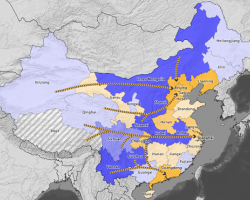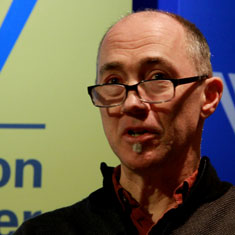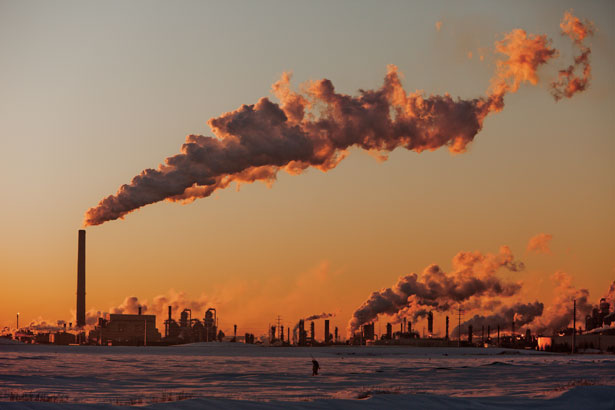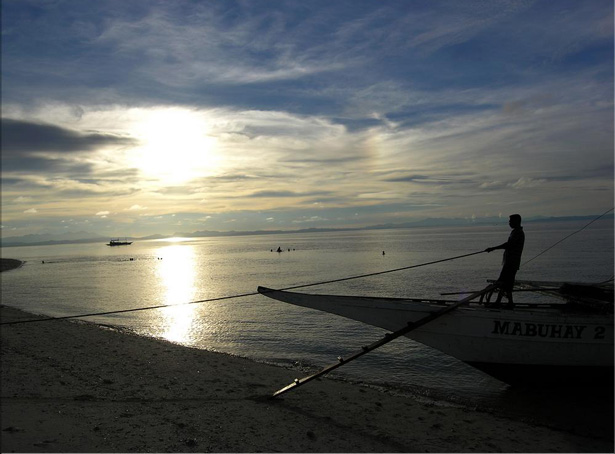-
Child Mortality in the Developing World: Hans Rosling Crosses the “River of Myths” Once More
›“The world my father told me about 50 years ago was a divided world,” says Hans Rosling, famed Swedish statistician and development expert, in a new video. Standing in the middle of one of his trademark graphs of development indicators, his body neatly splitting the data, he gestures: “In many people’s minds, the world still looks like this: developing and developed.”
“But it’s a myth,” he continues, “because the world has improved immensely in the last 50 years.”
-
Mapping China’s Massive West-East Electricity Transfer Project [Infographic]
›The Wilson Center’s China Environment Forum is proud to announce that we are launching our first interactive infographic: a map of China’s West-East Electricity Transfer Project. The map underscores China’s energy and water imbalances and the looming choke point China faces in terms of water, food, and energy security. The map also illustrates how consumer goods made in China’s factories along its eastern coast are powered by coal and hydropower in the country’s western provinces.
-
Aging in the 21st Century: A Celebration and a Challenge
›
“We are in the midst of a silent revolution,” said Ann Pawliczko, a senior technical advisor in the population and development branch at the United Nations Population Fund (UNFPA), quoting former UN Secretary-General Kofi Annan. “It is a revolution that extends well beyond demographics, with major economic, social, cultural, psychological, and spiritual implications.”
-
Fourth Annual Call for Papers on Reducing Urban Poverty
›
To encourage a new generation of urban policymakers and promote early career research, the Wilson Center’s Comparative Urban Studies Project, USAID, the International Housing Coalition, the World Bank, and Cities Alliance are co-sponsoring a fourth annual paper competition for graduate- and PhD-level students focused on the challenges facing urban centers in the developing world.
-
Peter Thomson on the Big International Environment and Energy Stories of 2013
›
Increasing energy demands around the world will mean a continuing focus on other fuel sources and climate change, said Peter Thomson of PRI’s The World, including the use of coal in countries like China and the safety of hydraulic fracturing and nuclear power. Other areas to watch include water, agriculture, and possible tipping points like dieback in the Amazon rainforest.
-
Avoiding the Resource Curse in East Africa’s Oil and Natural Gas Boom
›
This year, Texas-based Anadarko and Italian partner ENI are due to make the final investment decision on whether to construct one of the largest liquefied natural gas facilities in the world in Mozambique. The complex would allow them to tap into deep off-shore gas fields that could rival Australia and Qatar as the largest liquefied natural gas reserves in the world.
-
Environmental Journalists Discuss the Year Ahead in Energy and Environment News
›
Environmental desks at newspapers around the world may be on the defensive, but the stories are only getting bigger. On January 25, six environmental journalists from Bloomberg, EnergyWire, Public Radio International, the Associated Press, and the Yale Forum on Climate Change and the Media gathered at the Wilson Center for a panel cosponsored by the Environmental Change and Security Program and the Society of Environmental Journalists to discuss what to watch for in the coming year, from President’s Obama’s mention of climate change in his inaugural address to the prospects of shale gas and the Keystone XL pipeline. [Video Below]
-
Fishing for Families: Reporting on Population and Food Security in the Philippines
›
“My income is just right to feed us three times a day,” Jason Bostero told Sam Eaton in the rural Philippine village of Humayhumay. “It’s really, really different when you have a small family.” Eaton traveled to the Philippines to report on the connections between food security and population for Homelands Productions, creating a short film and radio piece that ran on NewsHour and Marketplace as part the Food for Nine Billion series last year. [Video Below]
Showing posts from category *Blog Columns.











